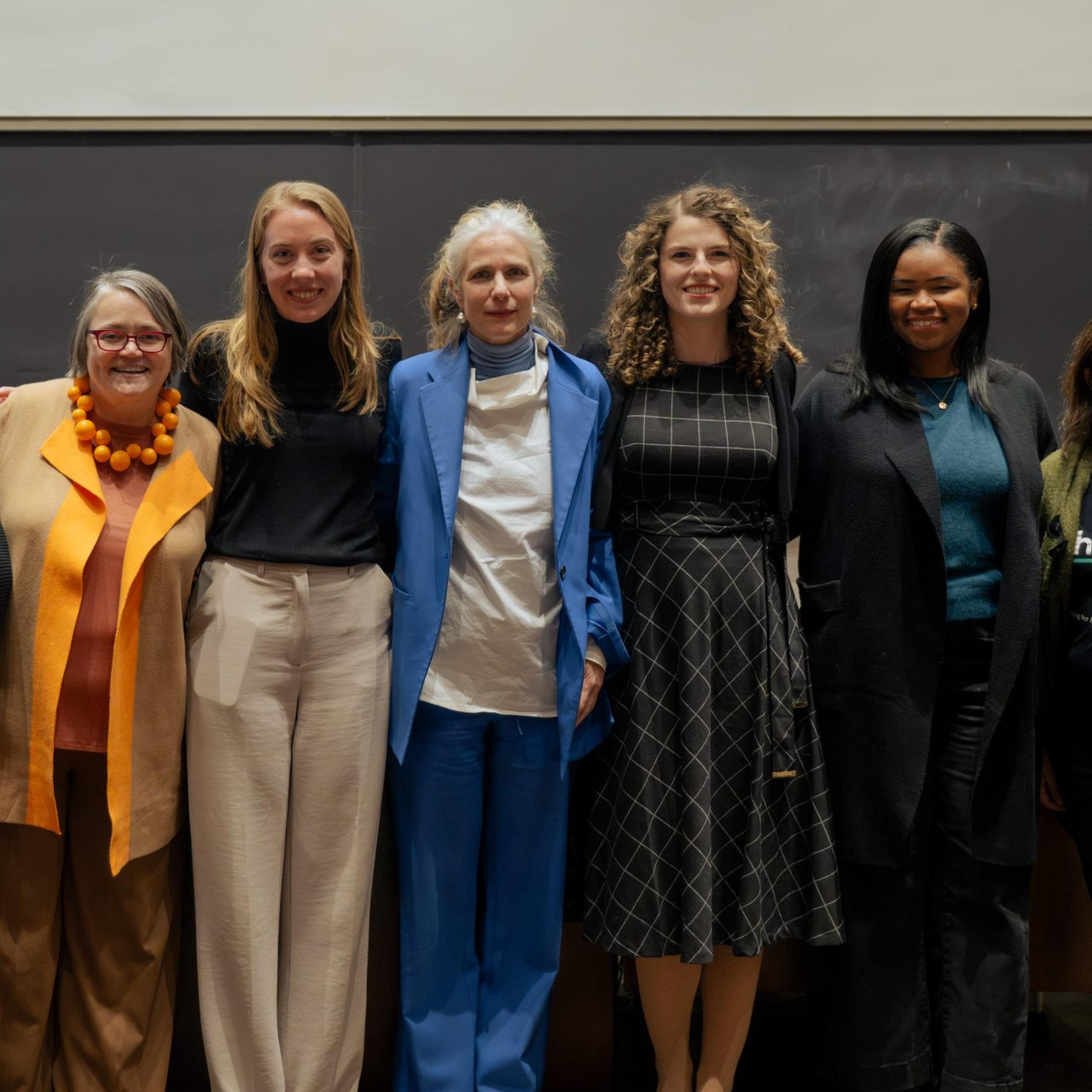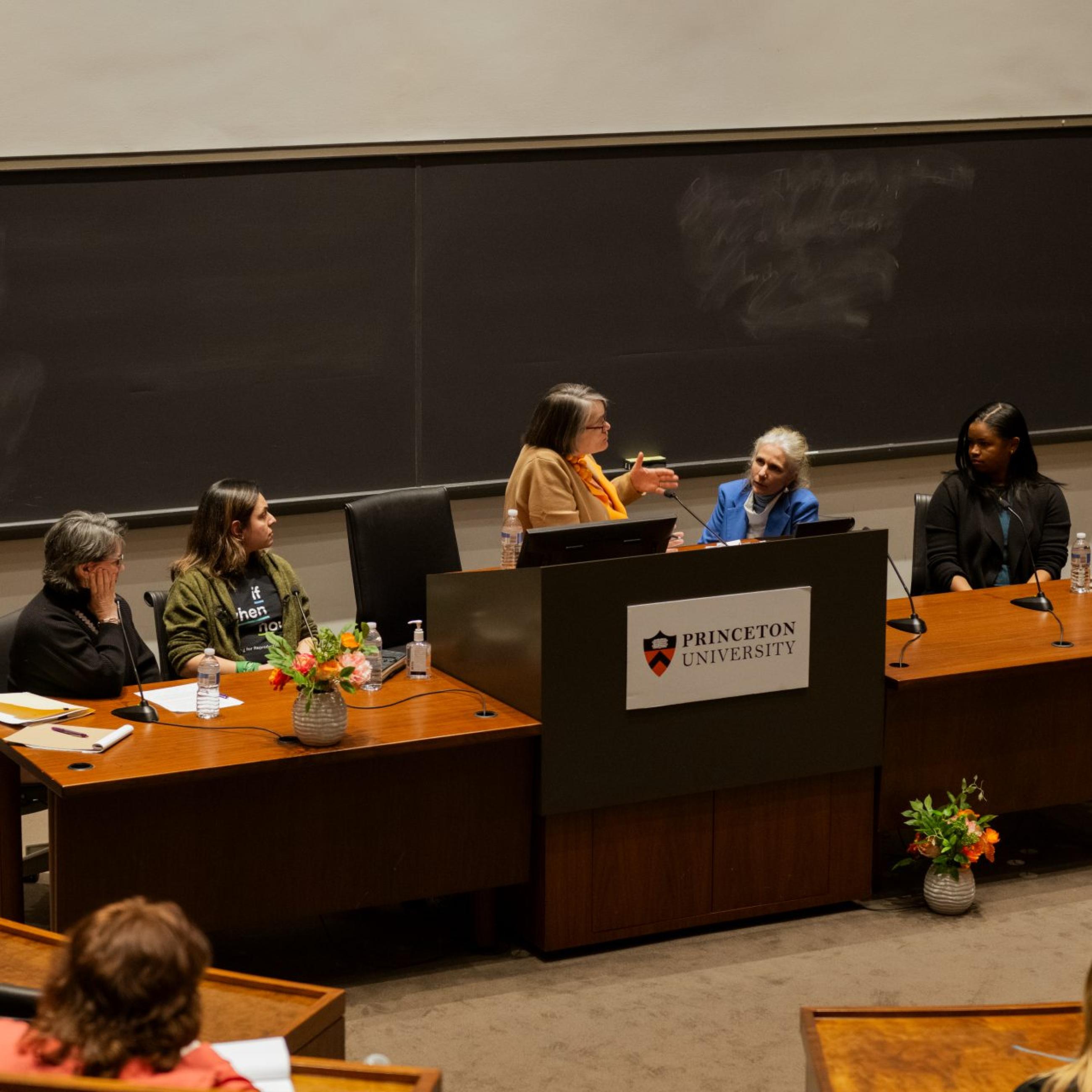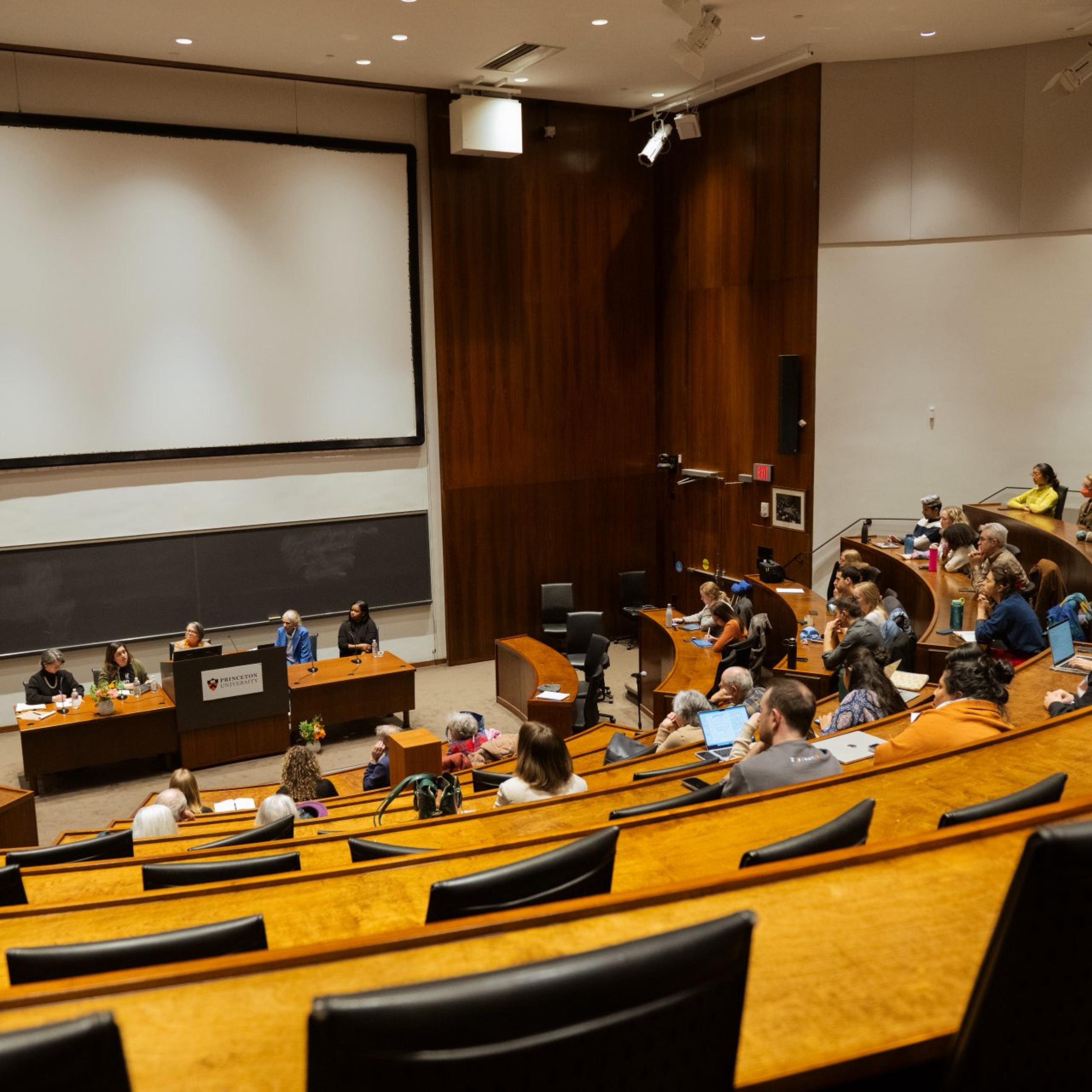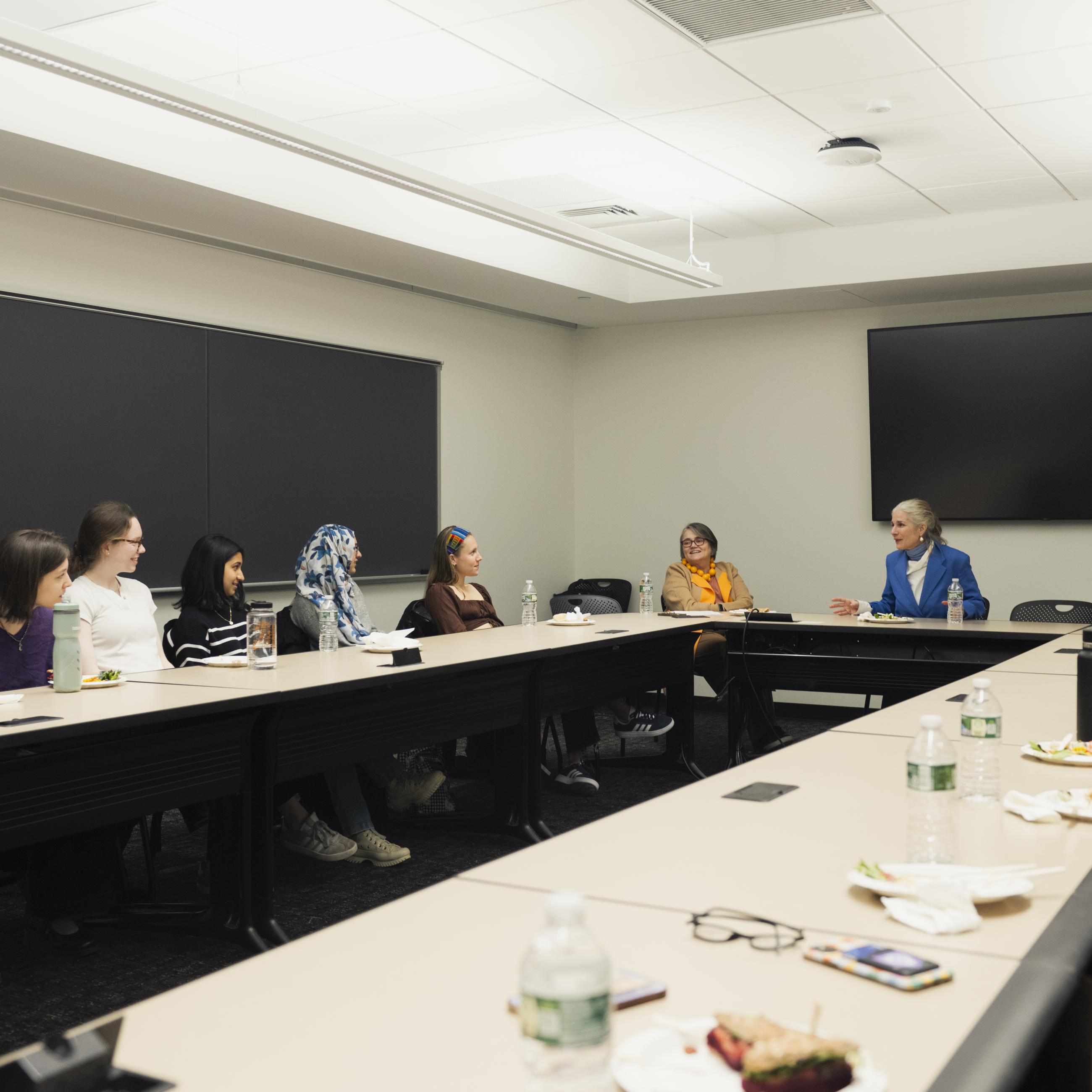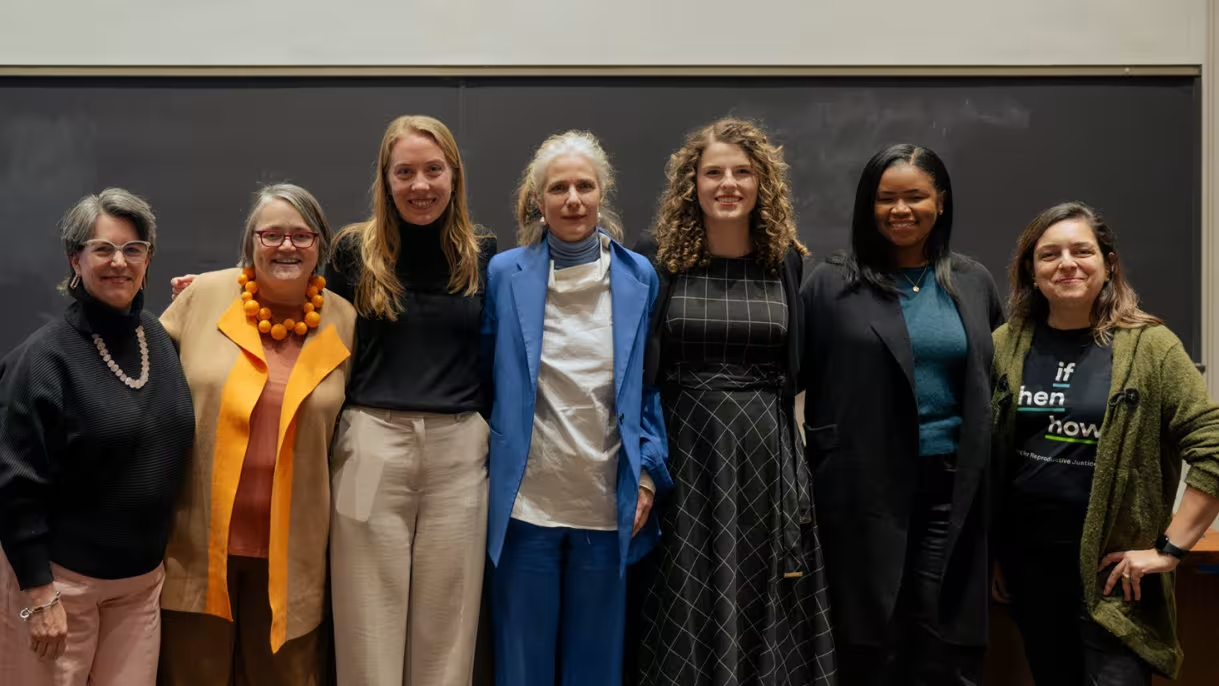

Redefining Reproductive Rights: Insights from a Critical Roundtable Discussion
Since the U.S. Supreme Court handed down its decision in Dobbs v. Jackson Women's Health Organization, reproductive justice and the long-term ramifications of the result have been hotly contested issues. On Monday, March 25, the Princeton community gathered to hear academic, legal, medical, and policy leaders discuss the challenges of basic health care in a post-Dobbs world.
Heather Howard, a professor of the practice and co-director of the Center for Health and Wellbeing's Global Health Program, moderated a panel that included Elizabeth Armstrong MPA ’93, associate professor of sociology and public affairs; Farah Diaz-Tello, senior counsel and legal director of If/When/How; Rebecca Gomperts MPP ’11, founder and director of Women on Waves and Women on Web; and Clarke Wheeler MPA ’21, a senior policy analyst on reproductive rights and health at the National Women’s Law Center.
During a rich discussion, the panelists found commonality in a call for sustained advocacy. They agreed on the need to create a more holistic, ongoing movement that champions the rights of individuals to choose if and when they have children, in an environment where healthcare systems and social structures reinforce true reproductive freedom.
“[Your] rights begin in the mind,” Gomperts said.
According to Armstrong, one of the many outcomes following the Dobbs decision was that it “hollowed out” the reproductive justice movement to focus squarely on abortion. Wheeler continued that reproductive justice advocacy is now moving from a defensive to offensive orientation, with a “clear articulation that Roe isn’t enough.”
The panel was organized by the Gender and Policy Network, a Princeton School of Public and International Affairs graduate student organization focused on promoting engagement with gender-related issues in the curriculum and community.


